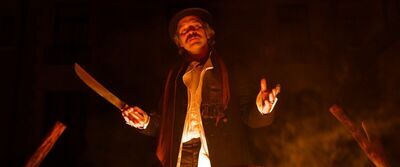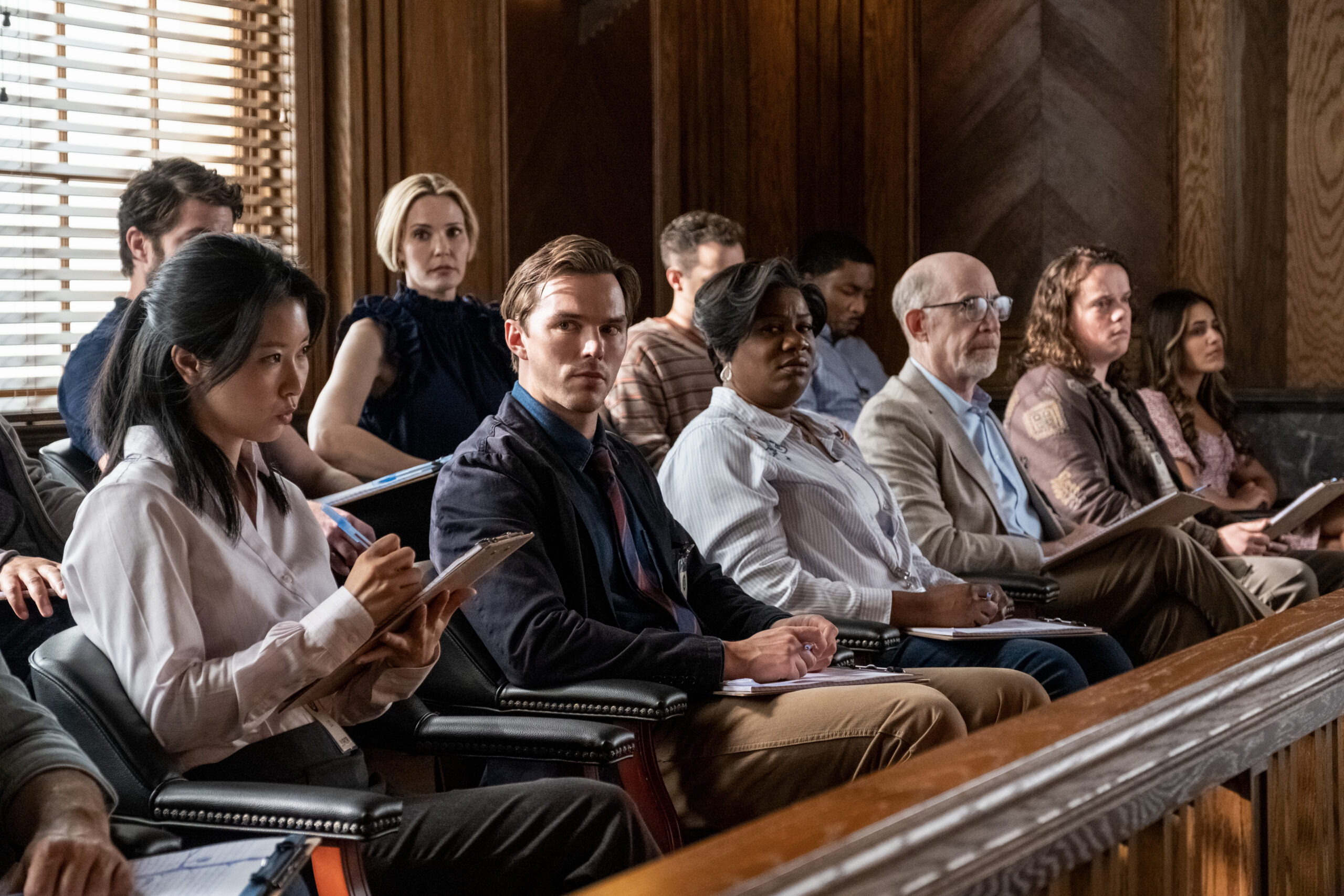

This movie opens with views of a manual typewriter, and indignant words being spelled out letter by letter. The time and place of this new movie co-directed by Austin Stark and Joseph Schuman, who also wrote the screenplay, becomes clear. It’s the United States in 1918, and the Spanish Flu is making its way to its shores. We soon see some vintage (fictional) headlines, including “Wear a mask or go to jail.” Oh dear. Is this period film aspiring to be a parable of Our Own Time?
Kinda sorta not really. Although the milieu of “Coup!” speaks allegorically to the pandemic of our own century, it does so softly; the movie is ultimately more a tale of class warfare than public health. The writer of the indignant words — among them “Immigrants and outsiders, colored and voiceless, demand closures!” — is newspaper columnist J.C. Horton (Billy Magnusson), who presides over a kingdom by the sea while writing breathless accounts of urban riots that he pretends to have been present at. His journalistic work, of course, does not fund his lavish estate; there’s a reference to his father having been a meat magnate and to J.C.’s muckraking having exposed his poor practices.
But before we properly meet the pompous, hypocritical J.C. and his rather less stuck-up wife Julie (Sarah Gadon), we see Peter Sarsgaard trimming his mustache before a mirror, messing with another man’s passport portrait, and bidding farewell to a corpse before taking on that corpse’s identity: that of Floyd Monk, newly employed to be the chef at the Horton estate, which shall eventually go into a form of lockdown that allows Monk to usurp Horton’s authority over his other servants (Horton insists on calling them “staff,” as if that means anything), his family, and much else.
Sarsgaard adopts a delightfully plummy Southern accent as the cheerfully spiteful rebel who enjoys tweaking propriety at every opportunity. Displaying a missing index finger that resulted from an injury he is proud to say he suffered on San Juan Hill, he can barely resist a sneer and eye-roll when Horton observes, “We are against mechanized mass slaughter here.” He can’t resist testing how far on thin ice he can skate, as when he stage-whispers “Why don’t you kiss my ass, nancy boy” to J.C. and, when asked WHAT he just said, revises it to “Why don’t we get some sassafras for the boy.” He plays three-card-monte with Horton’s young daughters and allows Julie to play poker with him and the staff. We eventually learn of the real indignation behind Monk’s pose, and once the character’s anger is compelled to emerge, the indignation is briefly bracing.
That indignation doesn’t really end up getting this representative of the underclass anywhere. (That’s putting it mildly.) And it’s a bumpy road to get to it. Mrs. McMurray (Kristine Nielsen), the imperious head of the household help, is righteously skeptical of Monk, so the chef contrives to get her out of the way with help from some mildly toxic mushrooms. It’s when Mrs. McMurray reacts to the dosing that the movie shows its central flaw. Breaking into a sweat, she begins chanting, “The power of Christ compels you,” and then pukes pea-green onto J.C. This pointless “Exorcist” reference isn’t a third as clever as the moviemakers seem to believe it is and reflects a tiresome self-satisfied tone that is made a fair bit more tolerable by Sarsgaard’s juicy lead performance.



